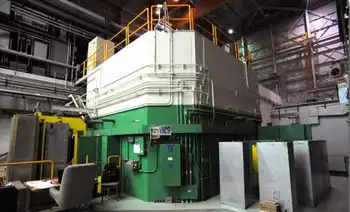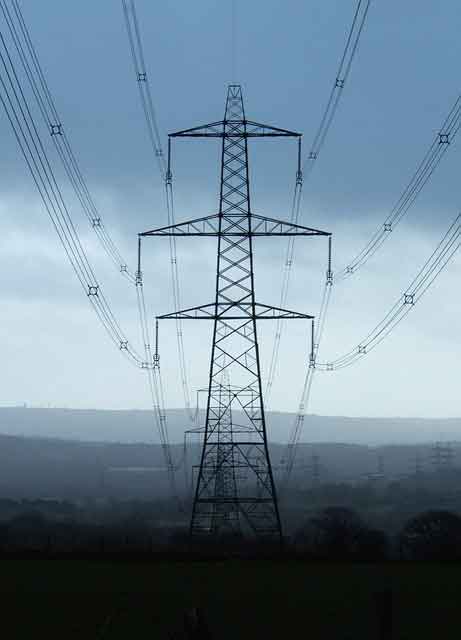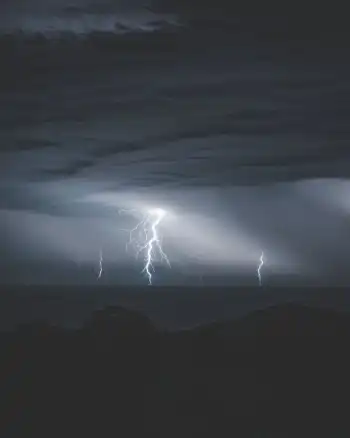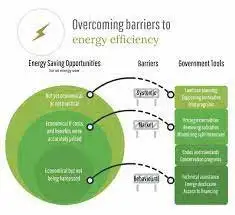Wall Street Fossil Fuel Pivot signals banks reassessing ESG, net-zero, and decarbonization goals, reviving oil, gas, and coal financing while recalibrating clean energy exposure amid policy shifts, regulatory rollbacks, and investment risk realignment.
Key Points
A shift as major U.S. banks ease ESG limits to fund oil, gas, coal while rebalancing alongside renewables.
✅ Banks revisit lending to oil, gas, and coal after policy shifts.
✅ ESG and net-zero commitments face reassessment amid returns.
✅ Renewables compete for capital as risk models are updated.
The global energy finance sector, worth a staggering $1.4 trillion, is undergoing a significant transformation, largely due to former President Donald Trump's renewed support for the oil, gas, and coal industries. Wall Street, which had previously aligned itself with global climate initiatives and the energy transition and net-zero goals, is now reassessing its strategy and pivoting toward a more fossil-fuel-friendly stance.
This shift represents a major change from the earlier stance, where many of the largest U.S. banks and financial institutions took a firm stance on decarbonization push, including limiting their exposure to fossil-fuel projects. Just a few years ago, these institutions were vocal supporters of the global push for a sustainable future, with many committing to support clean energy solutions and abandon investments in high-carbon energy sources.
However, with the change in administration and the resurgence of support for traditional energy sectors under Trump’s policies, these same banks are now rethinking their strategies. Financial institutions are increasingly discussing the possibility of lifting long-standing restrictions that limited their investments in controversial fossil-fuel projects, including coal mining, where emissions drop as coal declines, and offshore drilling. The change reflects a broader realignment within the energy finance sector, with Wall Street reexamining its role in shaping the future of energy.
One of the most significant developments is the Biden administration’s policy reversal, which emphasized reducing the U.S. carbon footprint in favor of carbon-free electricity strategies. Under Trump, however, there has been a renewed focus on supporting the traditional energy sectors. His administration has pushed to reduce regulatory burdens on fossil-fuel companies, particularly oil and gas, while simultaneously reintroducing favorable tax incentives for the coal and gas industries. This is a stark contrast to the Biden administration's efforts to incentivize the transition toward renewable energy and zero-emissions goals.
Trump's policies have, in effect, sent a strong signal to financial markets that the fossil-fuel industry could see a resurgence. U.S. banks, which had previously distanced themselves from financing oil and gas ventures due to the pressure from environmental activists and ESG (Environmental, Social, and Governance) investors, as seen in investor pressure on Duke Energy, are now reconsidering their positions. Major players like JPMorgan Chase and Goldman Sachs are reportedly having internal discussions about revisiting financing for energy projects that involve high carbon emissions, including controversial oil extraction and gas drilling initiatives.
The implications of this shift are far-reaching. In the past, a growing number of institutional investors had embraced ESG principles, with the goal of supporting the transition to renewable energy sources. However, Trump’s pro-fossil fuel stance appears to be emboldening Wall Street’s biggest players to rethink their commitment to green investing. Some are now advocating for a “balanced approach” that would allow for continued investment in traditional energy sectors, while also acknowledging the growing importance of renewable energy investments, a trend echoed by European oil majors going electric in recent years.
This reversal has led to confusion among investors and analysts, who are now grappling with how to navigate a rapidly changing landscape. Wall Street's newfound support for the fossil-fuel industry comes amid a backdrop of global concerns about climate change. Many investors, who had previously embraced policies aimed at curbing the effects of global warming, are now finding it harder to reconcile their environmental commitments with the shift toward fossil-fuel-heavy portfolios. The reemergence of fossil-fuel-friendly policies is forcing institutional investors to rethink their long-term strategies.
The consequences of this policy shift are also being felt by renewable energy companies, which now face increased competition for investment dollars from traditional energy sectors. The shift towards oil and gas projects has made it more challenging for renewable energy companies to attract the same level of financial backing, even as demand for clean energy continues to rise and as doubling electricity investment becomes a key policy call. This could result in a deceleration of renewable energy projects, potentially delaying the progress needed to meet the world’s climate targets.
Despite this, some analysts remain optimistic that the long-term shift toward green energy is inevitable, even if fossil-fuel investments gain a temporary boost. As the world continues to grapple with the effects of climate change, and as technological advancements in clean energy continue to reduce costs, the transition to renewables is likely to persist, regardless of the political climate.
The shift in Wall Street’s approach to energy investments, spurred by Trump’s pro-fossil fuel policies, is reshaping the $1.4 trillion global energy finance market. While the pivot towards fossil fuels may offer short-term gains, the long-term trajectory for energy markets remains firmly in the direction of renewables. The next few years will be crucial in determining whether financial institutions can balance the demand for short-term profitability with their long-term environmental responsibilities.
Related News












